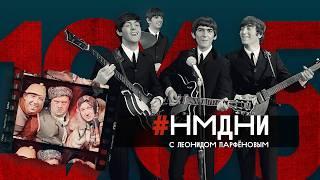
GERMANIC LINGUISTICS #3 - THE 1st CONSONANT SHIFT
Комментарии:

Thanks for including Pie , Latin and Greek .
Sanskrit would also be nice .
Music is not necessary , but if you want to have it all costs , don´t make it that reptitive please .

Thank sir very useful vlog
Ответить
thanks, now it is clear, I hope to pass the exam
Ответить
There are still plosive palatal sound in polish languages ć (voiceless) and dź (voiced). Plosive palatal sounds still exist in indoeuropean languages. Please don't forget about satem (balto-slavic family and indo-iranien family) branch of indoeuropean languages! Satem group is so big like centum group!
Ответить
Not a linguistics professor, but the immediate problem I see with the notion of a glottal delay is that we get aspirated plosives right at the start of utterances -- "Peter told me..." etc. -- so it doesn't describe the current process and is entirely speculative about an unobservable step.
It's one thing proposing an intermediate step that involves a sound that exists in some known language, but I've never heard a claim about aspirated consonants in any language that involve maintaining pressure in the mouth. during the stop.

Fix your camera.
Ответить
I learned so much today!
Ответить
I like how you actually go into detail why p becomes f and so on. Finally I know why, because the germanic people forgot to open their glottis!
Ответить
Super super utile grazie 🙏
Ответить
As a indo aryan speaker i can confirme You pronounced bh gh dh perfectly🤣
Ответить
I am a Chinese (Cantonese speaker). Chinese people, sadly, have never studied language and sound change so detailed. They have always thought studying this isn't practical. Anyhow, I do find similar consonant shift in Chinese language throughout the history, when comparing modern Putonghua (official language recognized by the Beijing govt) with dialects (containing more ancient phonemes, like Cantonese) and neighboring languages (Korean & Japanese).
汉/韩/汗 are pronounced "Hon" in Cantonese /“Han" in Putonghua, but "Kan" in Japanese.
兴in Cantonese is pronounced "Hing", but "Xing" in Putonghua
"番" in general is pronounced "Fan", in general, when isolated; when it is used as a sound syllable, it is pronounced "Pan"(Putonghua) / "Poon" (Cantonese)
influenced by nomadic tribes.

Thank God an actual indepth look at germanic evolution
Ответить
Thank u! ❤
Ответить
Great explanation! If I may be a little critic, you show a tendency to glottalize unaspirated stops :)
How many times do you think Walliserdüütsch underwent Grimm's law? :)

Thank you for quoting Meillet! I note that, for his part, he considers the glottis to be closed by default, which is not the case of every Romance language speaker. In some contexts, I personally identify it as a sign of distress (I've had chant and flute courses, so I've been in such environments in which the position of the glottis by default matters).
I note that Antoine Meillet was born in the French Central Mountain, where he spent his childhood.
Johanna Nichols, Caleb Everett, Matthias Urban and others argued for a vertical distribution in sound shift patterns. I tend to agree with them on this principle.
If you are on a flat landscape at sea level at a medium latitude, you're not likely to feel like you lack air to breathe, nor will you feel like you're getting cold by just breathing out warm air (because the sea makes the climate temperate), so you won't watch how much air flows in and out exactly. You won't close your glottis by default. But you'll watch that the always changing wind doesn't make you misunderstood, so to say: you'll watch that your vocal cords accompany your speech.
If, on the contrary, you are way above sea level and/or in a climate with a high temperature amplitude, you'll watch the air that flows in and out, but depending on the protection that the mountains around you do (or don't) offer you, you might (or not) generally assume that the wind doesn't disturb you (that is, if the wind is exceptional, as opposed to habitual, and disturbs you in other ways than hindering comprehension whenever it occurs). That's when you generally close your glottis, like German people do it by always beginning a word by a glottal stop when they write it with an initial vowel, and by avoiding speaking voiced consonants (if you're not concerned by the wind; if you are, you might try to keep the air flowing through your vocal cords inside your throat, which is when you start making pharyngeal sounds). Now when your glottis is generally closed but you feel that you need more air pressure to pronounce non-glottal unvoiced sounds than for their glottal, etymologically voiced counterparts, you get unvoiced aspirated sounds, just like you put it. That's my opinion.

I thought it's PIE *treyes became PG *thrijiz thus Gutisk threis, and Englisc thrie.
Ответить
🙃
Ответить
Grazie, Fabio. I came here in search of a thorough exposition on germanic linguistics from PIE, which I got. What I didn’t expect was to end up laughing my ass off every few moments 😂
Ответить
Ваще чётко. Протосы расползись своими старгейтпортами по всей европе и двились согласными. Хоть мне это всё помогло выучить немецкий.)
Ответить
Ooh, this is really interesting. By the way I actually do clean toilets for a living. Better brush up on my fricatives, then.
Ответить

























